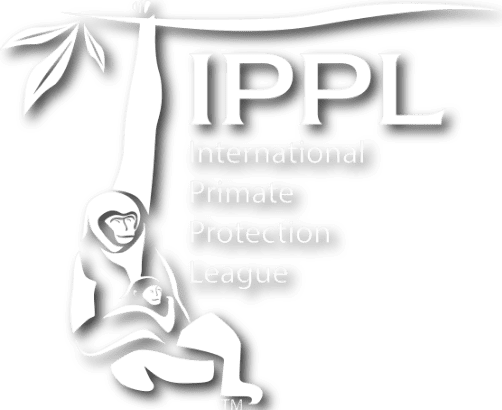Primate friends old and new at the animal rights conference!

It was our one chance this year to meet hundreds of animal-friendly people of all ages from across the nation and beyond—all at one convenient venue. This year’s Animal Rights National Conference (AR2013, organized by the Farm Animal Rights Movement) was held again in Washington, DC. Unlike last year, though, no other animal group is organizing its own major gathering, so this was it!
IPPL has been glad to help sponsor this event for several years. So, heading into the last weekend in June, Shirley and I traveled to AR2013 and gave presentations to appreciative audiences, staffed an IPPL literature table, chatted with long-time supporters, and even got to make some new friends—including an astonishingly large contingent of animal activists from South Carolina, of all places! Susan Parker, IPPL’s long-time volunteer from Norfolk, Virginia, helped us out for a couple of days, too.
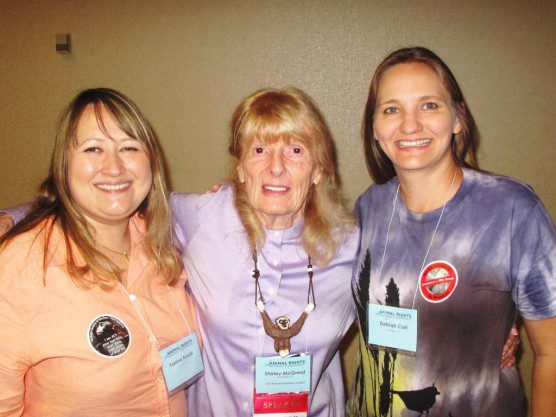
Shirley with two lovely IPPL supporters, Yanina Razak (L) and Deborah Carl (R). I last saw them at IPPL’s biennial meeting in 2012, so it was great to catch up!
Many of the attendees were there primarily because of their interest in the welfare and rights of farmed animals and the problems facing pet shelters, so Shirley and I talked about primates within the larger context of animal protection issues.
As part of a panel on “Lessons from campaigns to reduce animal use and abuse in laboratories and schools,” I described successful ways to stop the trade of lab primates at the source. I focused on two recent successful “case studies” that IPPL has participated in: one involved the aborted attempt to export rhesus monkeys from Nepal to U.S. labs, and one involved the suspension of permits to capture night monkeys for research in Colombia.
[field name=”AR2013-Sharon”]
Shirley’s main presentation was part of a panel titled “Advocating for Primates.” She spoke about the common threats faced by primates in many countries as a result of human activities: habitat destruction, encroachment, poaching, illegal trafficking, and so on. As she said, sometimes primates like baboons and macaques are considered “nuisance” animals in their home countries—but human beings are the real “nuisance species.”
[field name=”AR2013-Shirley”]
Shirley also was given air time, as a conference sponsor, to say a few words of welcome during the initial plenary. She modestly touted the fact that this year is IPPL’s 40th anniversary; as the MC Dawn Moncrief said, she realized what an impressive feat that was when she considered that she had founded her own organization (A Well-Fed World) a mere four years ago. Shirley liked to say to young AR2013 attendees over the course of the conference, “You were negative-twenty years old when I founded IPPL!”
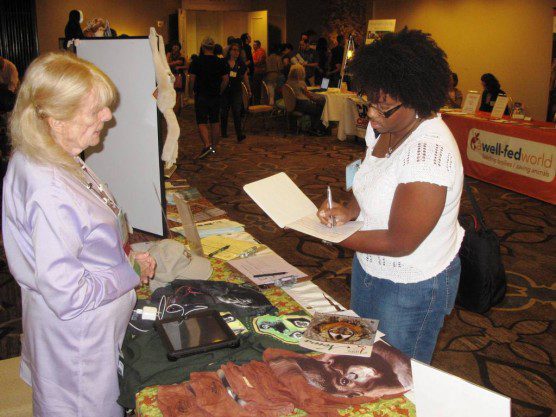
Shirley, standing at the IPPL information table, chats with a new friend, Anastasia Yarbrough, from North Carolina.
We had some handouts at IPPL’s table from our Hang Out for Orangutans event last month, which sparked lots of questions about palm oil. Since many of the conference attendees are vegan, I had several conversations about the pros and cons about the palm oil in Earth Balance margarine.
I also sampled some amazingly tasty new products by another one of the conference’s sponsors, the Tofurky company, especially the incredible new line of vegan “artisanal sausages”—spinach pesto, spicy andouille, and chick’n and apple. Unfortunately (?), excellent vegan baked goods like cookies, cupcakes, and whoopie pies were everywhere; I overheard one attendee sigh that it used to be easy to lose weight on a vegan diet, but those days are now gone!
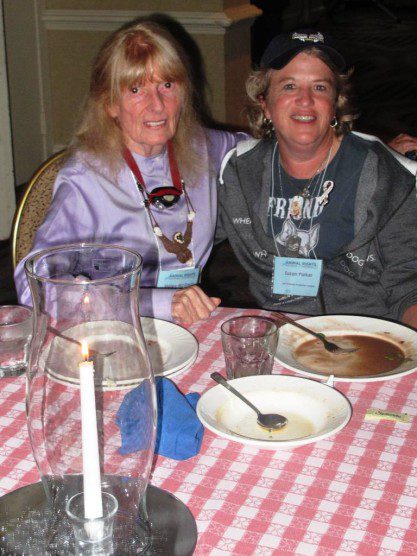
Shirley and our ace volunteer Susan Parker from Norfolk, Virgina, share a candlelit supper during a 4.5 hour blackout during the conference.
It’s no secret: it can sometimes be disheartening to work on behalf of animals. Setbacks and disasters are a regular occurrence. But being around so many people who share your basic feelings about animals is empowering and encouraging, as reflected in one frequently-cited quote: in the words of Martin Luther King, Jr., (channeling the 19th century abolitionist, Transcendentalist, and Unitarian minister Theodore Parker),
“The moral arc of the universe is long, but it bends toward justice.”
However, it doesn’t bend on its own. It bends because compassionate, dedicated people compel it to bend toward justice instead of oppression. I’m glad that IPPL is on the side of those who are on the side of justice for all animals—not just the human ones.
